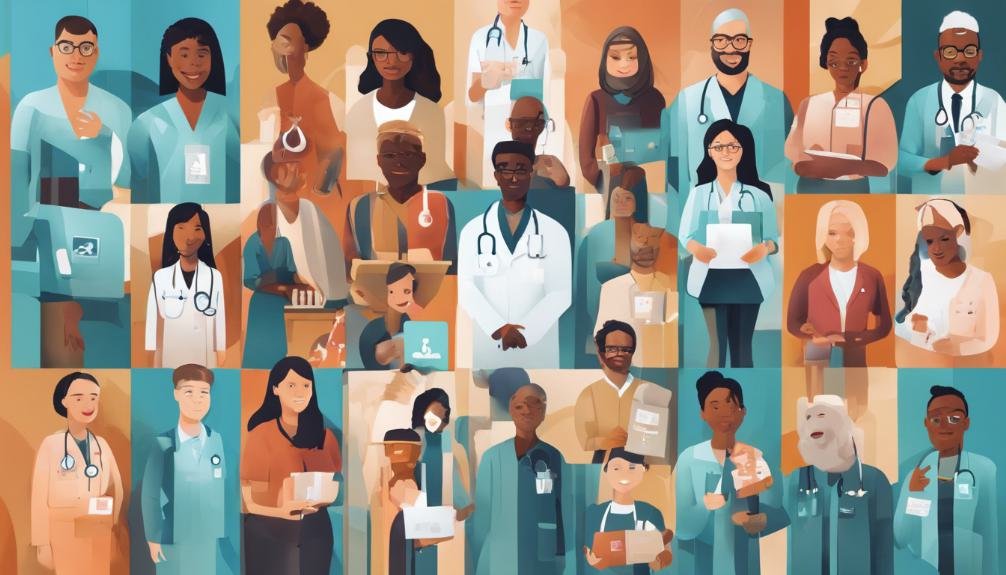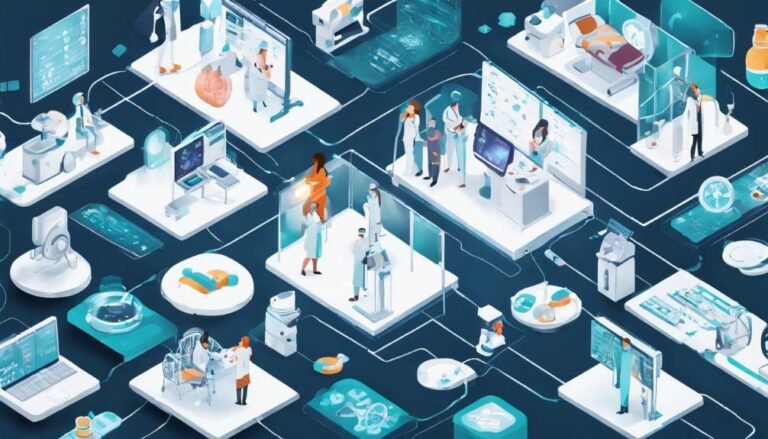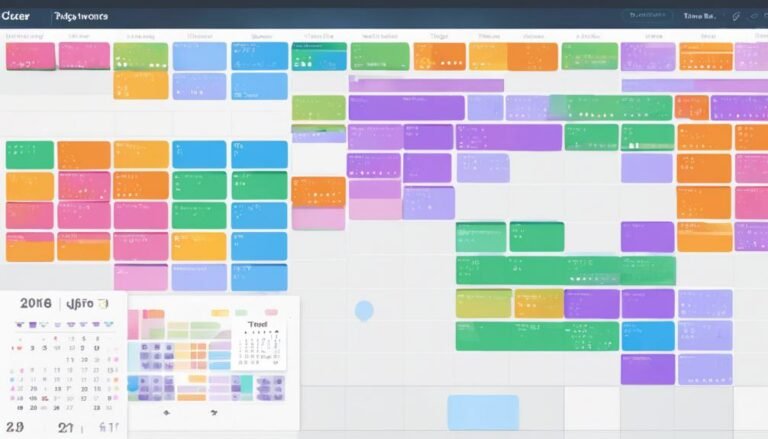AI for Health Equity
In considering AI for Health Equity, you may find yourself intrigued by the profound impact technology can have on leveling the playing field in healthcare. As AI continues to evolve, its application in addressing health disparities and promoting equitable access to care raises thought-provoking questions. How exactly can AI algorithms revolutionize preventive care and tailor interventions for diverse populations? The potential of AI to transform healthcare delivery in a more inclusive manner is a topic worth exploring further.
Key Takeaways
- AI personalizes interventions based on health data for improved outcomes.
- Telemedicine and AI expand healthcare access in underserved communities.
- AI-driven preventive care reduces disparities and promotes early intervention.
- AI addresses biases in healthcare data to optimize delivery for marginalized populations.
- Technology analyzes social determinants for tailored interventions, advancing health equity.
AI-Powered Personalized Interventions
Utilizing AI algorithms to tailor personalized interventions based on individual health data can greatly enhance health outcomes and promote equity in healthcare access. Treatment personalization through AI algorithms allows for a more precise approach to healthcare, taking into account each person's unique characteristics and needs. By analyzing vast amounts of data, AI can identify patterns that lead to improved patient outcomes.
Remote monitoring, a key component of personalized interventions, enables continuous tracking of health parameters and early detection of any deviations from the norm. This proactive approach can prevent health complications and provide timely interventions, ultimately leading to better health results for individuals. AI-powered personalized interventions not only benefit patients but also assist healthcare providers in making informed decisions based on real-time data.
The integration of AI into personalized healthcare interventions signifies a shift towards a more patient-centered approach, where treatments are tailored to individual requirements. This collaborative effort between technology and healthcare professionals ensures that patients receive the most effective care possible, ultimately contributing to improved health equity and outcomes for all.
Enhancing Healthcare Access in Underserved Communities
To address disparities in healthcare access, particularly in underserved communities, leveraging AI technologies can pave the way for more equitable and inclusive health services. Telemedicine expansion plays an important role in bridging the gap by providing virtual consultations and monitoring, breaking down barriers posed by distance and transportation. AI-powered telemedicine tools offer real-time support, enhancing access to healthcare professionals and resources.
Community partnerships are instrumental in tailoring healthcare solutions to the specific needs of underserved populations. Collaborating with local organizations and stakeholders helps in identifying technological barriers and designing outreach programs that address these challenges effectively. By working together, healthcare providers and community leaders can make sure that AI-driven innovations are accessible and user-friendly for all individuals, irrespective of their background or location.
Through a data-driven approach, we can analyze healthcare access patterns and customize outreach strategies to reach underserved communities effectively. By combining AI technologies with community engagement, we can create a more inclusive healthcare system that prioritizes health equity and improves outcomes for all.
Promoting Preventive Care With AI
You can harness the power of AI to promote preventive care by focusing on early detection benefits and implementing targeted intervention strategies.
AI technologies can analyze vast amounts of data to identify potential health risks and enable timely interventions, ultimately leading to better health outcomes.
Early Detection Benefits
By harnessing the power of artificial intelligence, healthcare providers can identify health issues at their earliest stages, enabling proactive interventions and promoting preventive care for better health equity. Through remote monitoring enabled by AI technology, individuals can receive continuous health assessments without the need for frequent in-person visits.
This constant stream of data allows for the early detection of any deviations from normal health parameters, prompting timely interventions. Early intervention facilitated by AI not only enhances individual health outcomes but also contributes to reducing healthcare disparities. By catching potential health concerns early, healthcare providers can address them before they escalate, ultimately decreasing the burden on the healthcare system and improving overall health equity.
This proactive approach to healthcare empowers individuals to take charge of their well-being, fostering a collaborative relationship between patients and healthcare professionals. Embracing AI for early detection benefits not only saves lives but also cultivates a culture of preventive care essential for achieving health equity.
Targeted Intervention Strategies
Harnessing artificial intelligence enables healthcare providers to tailor targeted intervention strategies, promoting preventive care and empowering individuals to proactively manage their health. By incorporating AI-driven insights, healthcare teams can identify at-risk populations and deliver personalized interventions that address specific health needs.
Community engagement plays an essential role in this process, ensuring that interventions are culturally competent and resonate with diverse groups.
Targeted outreach efforts, guided by AI algorithms, allow healthcare providers to reach individuals who may benefit most from preventive care initiatives. These initiatives can range from reminders for routine screenings to lifestyle recommendations tailored to an individual's health profile.
Personalized care plans, shaped by AI analysis of patient data, can enhance the effectiveness of preventive interventions and support long-term health outcomes.
Embracing AI for targeted intervention strategies not only improves health equity but also fosters a collaborative approach to healthcare delivery. By combining data-driven insights with compassionate care, providers can empower individuals to take charge of their health and well-being.
Leveraging AI for Health Disparities
You can harness the power of AI to address health disparities by focusing on data bias mitigation and improving access to care.
By identifying and rectifying biases in healthcare data, AI can help guarantee more accurate and equitable outcomes for all individuals.
Collaborating to enhance access to care through AI-driven solutions can pave the way for a more inclusive and just healthcare system.
Data Bias Mitigation
How can artificial intelligence be utilized to address and rectify data biases in healthcare, particularly in the context of reducing health disparities?
Detecting bias in data and ensuring algorithm fairness are critical steps in leveraging AI to mitigate health disparities. By implementing ethical considerations and accountability measures, we can work towards creating more equitable healthcare outcomes.
Bias detection mechanisms in AI systems can help identify and rectify biases present in healthcare data, such as underrepresentation of certain demographics or skewed datasets.
Additionally, ensuring algorithm fairness involves regularly evaluating and adjusting AI models to prevent perpetuating existing disparities.
Ethical considerations play a significant role in using AI for health equity. Upholding principles of fairness, transparency, and privacy is essential to building trust and ensuring that AI interventions benefit all individuals equally.
Accountability measures, such as establishing oversight committees and regularly auditing AI systems, can help monitor and address any unintended biases that may arise.
Access to Care
To address health disparities and improve access to care, leveraging artificial intelligence can play a pivotal role in optimizing healthcare delivery and outcomes for underserved populations. By utilizing AI-driven solutions, such as telemedicine expansion and targeted community outreach initiatives, healthcare providers can bridge the gap in access to care for marginalized communities.
Telemedicine expansion facilitated by AI enables remote consultations, monitoring, and follow-ups, breaking down geographical barriers and enhancing healthcare access for individuals who may face transportation or mobility challenges. Additionally, AI-powered systems can analyze vast datasets to identify at-risk populations and tailor outreach efforts to meet specific community needs effectively.
Community outreach programs enhanced by AI algorithms can help healthcare organizations better understand the unique socio-economic factors impacting access to care in underserved areas. By leveraging AI for health disparities, we can guarantee that all individuals receive the care they deserve, regardless of their background or circumstances.
Let's work together to harness the power of AI for equitable healthcare access.
AI in Addressing Social Determinants of Health
Utilizing artificial intelligence (AI) to analyze and address social determinants of health can greatly enhance healthcare interventions and outcomes. By leveraging AI technologies, healthcare providers can better understand and respond to the complex interplay of factors that influence individuals' health outcomes.
When it comes to addressing social determinants of health, two critical aspects to take into account are health literacy and cultural competence. Health literacy plays a fundamental role in ensuring that individuals can access, understand, and act upon health information. AI can help tailor educational resources to individuals' literacy levels, preferences, and needs, thereby promoting better health outcomes.
Additionally, cultural competence is crucial for providing care that respects and aligns with individuals' cultural beliefs, values, and practices. AI tools can assist in recognizing and integrating cultural considerations into healthcare delivery, fostering trust and enhancing the effectiveness of interventions.
Advancing Health Equity With AI Tools
Harness the power of artificial intelligence (AI) to drive advancements in health equity and create meaningful impact in healthcare settings. By leveraging AI-driven health outcomes, we can revolutionize the way healthcare is delivered, making it more accessible and equitable for all individuals.
Technology for health equity plays a vital role in identifying disparities, predicting health outcomes, and tailoring interventions to specific needs. AI tools can analyze vast amounts of data to uncover patterns and trends that may go unnoticed, helping healthcare providers make more informed decisions. These insights enable proactive measures to address health disparities and improve outcomes for marginalized communities.
Through collaborative efforts between AI specialists, healthcare professionals, and community advocates, we can develop innovative solutions that bridge the gap in healthcare access and quality.
AI Solutions for Health Inequities
AI offers innovative solutions to address health inequities by leveraging data-driven insights and proactive interventions to improve outcomes for underserved communities. Through telehealth expansion, AI enables individuals in remote or underserved areas to access healthcare services that were previously out of reach.
This expansion of telehealth not only increases access but also enhances the efficiency of healthcare delivery, reducing disparities in healthcare access. Additionally, AI plays a crucial role in remote monitoring, allowing healthcare providers to keep track of patients' health conditions outside traditional clinical settings.
This is particularly beneficial for individuals who face barriers to regular in-person visits, such as transportation issues or limited healthcare facilities in their vicinity. By continuously monitoring patients remotely, healthcare providers can intervene early, prevent complications, and provide timely care, ultimately leading to better health outcomes for marginalized populations.
Achieving Fairness in Healthcare With AI
Improving healthcare equity through the integration of advanced technology is a key focus in addressing disparities in access and outcomes in underserved communities. AI diagnostics play an essential role in achieving fairness in healthcare by providing accurate and timely assessments, especially in areas with limited resources.
By utilizing AI-powered tools, healthcare providers can enhance diagnostic capabilities, leading to more efficient and effective treatment plans for all patients.
Equity interventions guided by AI algorithms can help identify at-risk populations and tailor interventions to meet their specific needs. These interventions can range from personalized treatment recommendations to targeted outreach programs aimed at increasing access to care.
By leveraging AI for equity initiatives, healthcare systems can work towards reducing disparities and improving health outcomes for marginalized communities.
Data-driven approaches are essential in measuring the impact of AI interventions on healthcare equity. Collaborative efforts between researchers, policymakers, and healthcare professionals are crucial in implementing and evaluating the effectiveness of AI-driven equity strategies.
Together, we can harness the power of AI to create a more equitable healthcare system that prioritizes the well-being of all individuals.
Conclusion
You've seen how AI for Health Equity is revolutionizing healthcare by providing personalized interventions, enhancing access in underserved communities, promoting preventive care, and addressing social determinants of health.
Imagine a world where AI-powered remote monitoring detects early signs of disease in rural areas, allowing for timely interventions and improved health outcomes.
With AI leading the way, we can work together to bridge the gap in healthcare disparities and create a more equitable future for all.







